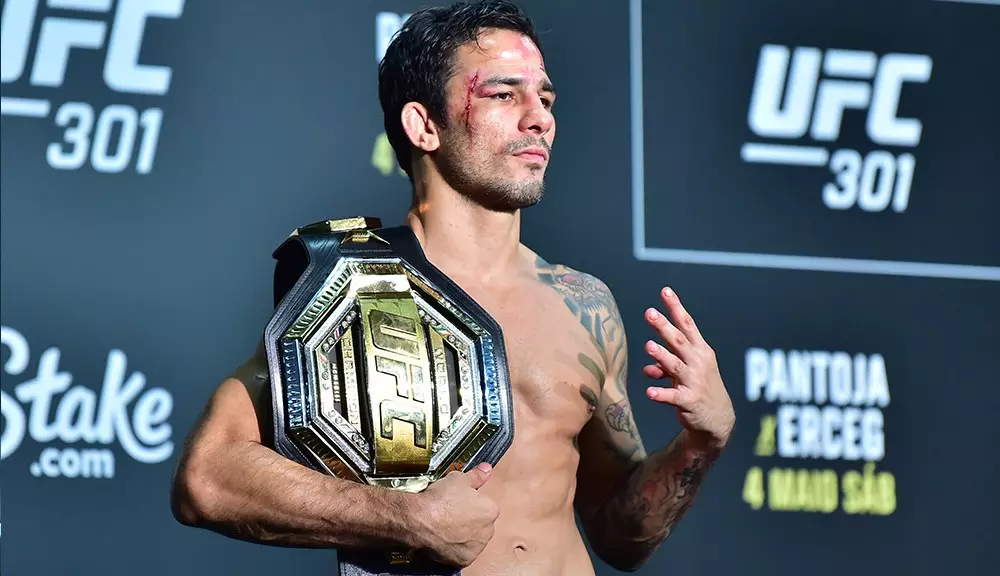The UFC flyweight division is in a fascinating state of flux, particularly with the upcoming title fight between reigning champion Alexandre Pantoja and newcomer Kai Asakura. Scheduled for UFC 310 on December 7 at the T-Mobile Arena in Las Vegas, this matchup not only piques the interest of fans but also sparks contention among fighters within the weight class. Asakura, a former RIZIN champion with a record of 21-4, adds a fresh narrative to an already vibrant division. While established names like Kai Kara-France may express their reservations about a newcomer jumping straight into title contention, Pantoja believes this bout is not just timely but strategically sound.
Pantoja’s unique position in this scenario lies in his extensive experience and recent success within the UFC, holding a record of 28-5, including 12 wins inside the octagon. He understands the delicate balance between maintaining competitive integrity and breathing new life into the division. “I think it’s all about time,” he remarks, clearly acknowledging both the urgency and appropriateness of this matchup. After securing victories over notable opponents like Brandon Moreno and Brandon Royval, Pantoja relishes the prospect of a fresh challenge.
The flyweight division has seen moments of glory as highlighted by Moreno’s recent victory over Amir Albazi and Royval’s impressive win against Tatsuro Taira. Nevertheless, Pantoja’s appetite for innovation in his confrontations is evident. “This time, nobody can say nothing,” he insists, illustrating his desire to change the narrative and provide an opportunity for growth in the division.
Introducing Asakura to the mix is not merely about adding an exciting matchup; it embodies the broader narrative of cross-promotional opportunities that the UFC increasingly embraces. Asakura, often hailed for his grappling prowess and striking capabilities, presents a unique skill set that Pantoja is intrigued to counter. The champion’s acknowledgment of Asakura as an opponent signals the evolving landscape where new styles and techniques shape competition dynamics.
Pantoja’s analysis of the flyweight scene reveals a thoughtful approach to his fighting career. He recognizes the necessity of adaptability in strategy, especially with fighters like Asakura entering the fray. While he values established challengers, he also sees the importance of integrating new fighters into the conversation. “He’s good for the whole division,” says Pantoja, recognizing the potential ripple effect of introducing fresh talent.
The anticipation surrounding the Pantoja-Asakura showdown is palpable, yet it is only the beginning. Should Pantoja successfully defend his title, it may pave the way for further matchups involving Asakura and other contenders, thus enriching the competitive environment in the flyweight division. Conversely, if Asakura manages an upset victory, it could signify a seismic shift in the division’s hierarchy, igniting new storylines and rivalries.
The upcoming title fight is more than just a championship bout; it signifies the evolution and diversification of the UFC’s flyweight division. As Pantoja prepares to defend his crown against a fresh face like Asakura, both the fighters and fans are poised for a thrilling chapter in MMA history.

